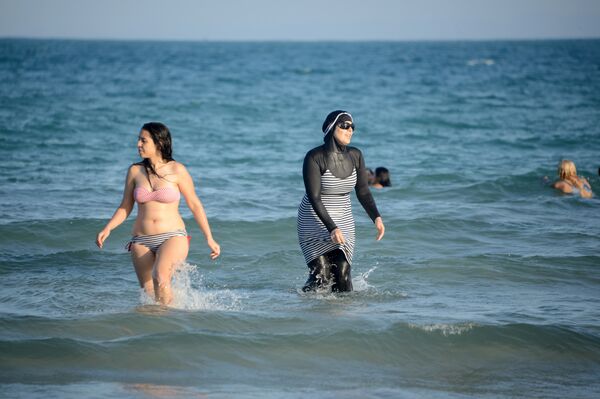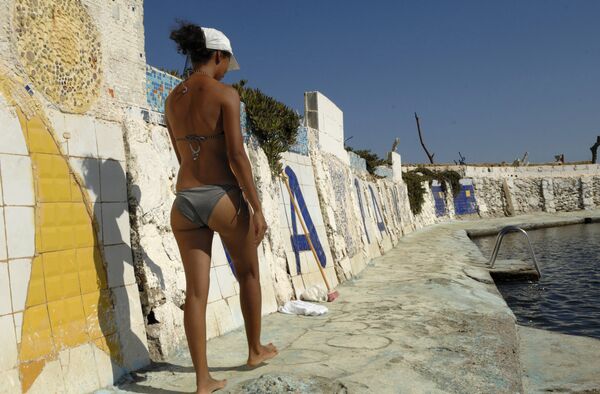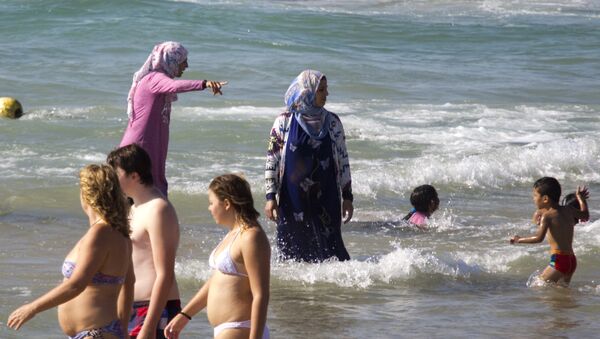More and more beach-goers in Lebanon have become subject to a restriction on wearing the "burkini," a swimming costume for conservative Muslims that covers a women's body from top to toe.
Burkini sales have soared in recent years as the garment has received attention from the media and the authorities in Europe and elsewhere.
Australian designer Aheda Zanetti, who claims the trademark on the name burkini and burqini, told the BBC that online sales were up 200 percent as a result of the furor.

Lebanese sociologist Talal Atrisi told Sputnik that the country is home to diverse cultures which have peacefully co-existed for a long time. A burkini ban on certain beaches doesn't mean that these women are completely prevented from swimming, but rather that they are supposed to visit special women-only beaches or pools. Some owners of public pools and beaches are trying to attract a certain clientele, who might not want to see women in burkinis, the expert explained.
"There is a culture with a conservative Islamic dimension which is manifested in terms of dress and tradition. In contrast, there is another culture that is also relatively conservative but influenced by the western atmosphere," Atrisi said.
"Last year, people began to ask about the 'burkini' and we started selling them in the store. The price of this swimming costume ranged from $70 to $100."
"This year, it is even more popular and more and more stores are selling it, so the price has also fallen accordingly. However, customers who buy 'burkinis' mainly wear them in Egypt, because people on popular beaches in Lebanon are against such clothes. Women in hijabs go to special women's pools," she explained.
Lebanese resident Ola, 32, told Sputnik that while she observed rules on traditional Islamic dress, she is not in favor of burkinis.
"I wear a hijab and think that the 'burkini' is a marketing ploy in order to make money by supposedly facilitating women's trip to ordinary beaches. I prefer special women's beaches," Ola revealed.
Natali, 20, also said she is opposed to burkinis.
"I'm against the 'burkini.' There are special places for women to bathe, where they are free to wear burkinis so why go to mixed pool," she asked.
However, 31-year-old Sara said that she misses out as a result of the burkini ban. When her husband and children are swimming in a pool or on the beach, she keeps her hijab on and watches them from afar.
The Lebanese ban on burkinis comes as female beachgoers in Algeria are also taking a stand against demands that they dress more conservatively.





